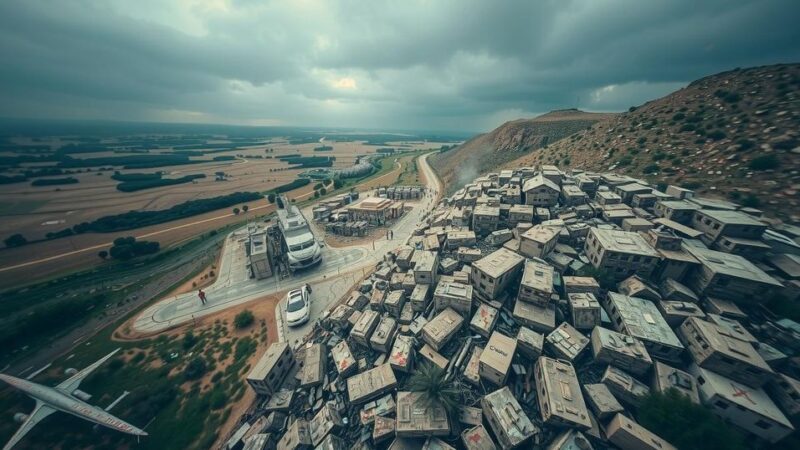Activists at COP29 faced significant restrictions on their demonstrations, despite extensive planning efforts. Many felt their voices were stifled by rules limiting visibility and expression, which contrasted sharply with the historical vibrancy of activist participation at past summits. Artists in Baku creatively adapted their messages in response to these challenges, using symbolism instead of direct criticism, while emphasizing the critical importance of their actions in the ongoing fight for climate justice.
At COP29, activists spent considerable time and effort preparing demonstrations, grappling with increasing restrictions imposed on their expressions. Despite weeks of planning and creative efforts, including crafting a giant snake banner for a protest against fossil fuel lobbying, many activists, such as Bianca Castro from Portugal, expressed frustration over the limited visibility and influence of their actions within the confines of the Baku Olympic Stadium, where demonstrators were restricted to designated areas, inhibiting their ability to vocalize key demands. This year, the theme centred on climate finance highlighted the significant role of voices from the Global South; however, activists like Rachitaa Gupta lamented the growing restrictions on naming specific countries and entities in protests, which they feel undermines their impact. As a response to these limitations, groups like the Artivist Network have resorted to creativity, utilizing symbolism and striking visuals instead of direct criticism. In this challenging environment, activists strive to assert their demands for justice and action, mindful that compliance with the UNFCCC’s code of conduct places them in a position where every expression of dissent requires negotiation and modification. Despite the palpable challenges they face, activists remain resolute in their belief that their voices are critical, with individuals such as Dani Rupa asserting that the need to be heard compels them to continue fighting for visibility amidst restrictive conditions. Conversely, Sathananthar from the Artivist Network noted the sense of frustration and the ongoing negotiations for a space to protest within the confines of what used to be a more vibrant atmosphere of public displays and marches. In essence, the struggle continues as activists endeavor to make themselves heard while adapting to ever-evolving restrictions to their rightful expressions of dissent.
The COP29 summit represents a significant international conference focused on global climate action, bringing together representatives from various nations to address pressing environmental challenges. Historically, activist participation has played a crucial role in advocating for changes and drawing attention to issues of justice and accountability regarding climate finance and corporate interests. However, in recent years, activists have observed a trend of increasing restrictions imposed by the United Nations Framework Convention on Climate Change (UNFCCC) and host governments limiting the avenues for public demonstration. This intensifying atmosphere of restriction has compelled activists to innovate in their methods of protest, often utilizing artistic expressions to convey messages without directly naming specific entities or countries, reflecting both a resilience and a frustration within the activist community.
In conclusion, the COP29 climate summit encapsulated the ongoing struggle faced by activists striving to make their demands heard amidst stringent limitations. While traditional methods of protest have been curtailed, a wave of creativity and innovation has emerged, allowing activists to express their concerns symbolically. Despite the frustrations over the restrictions limiting their ability to engage directly with delegates and decision-makers, those fighting for climate justice remain steadfast in their commitment to bring attention to historical and ongoing injustices. This year’s focus on climate finance amplified the voices of marginalized communities, underscoring the need for continued advocacy in the face of evolving challenges.
Original Source: apnews.com



